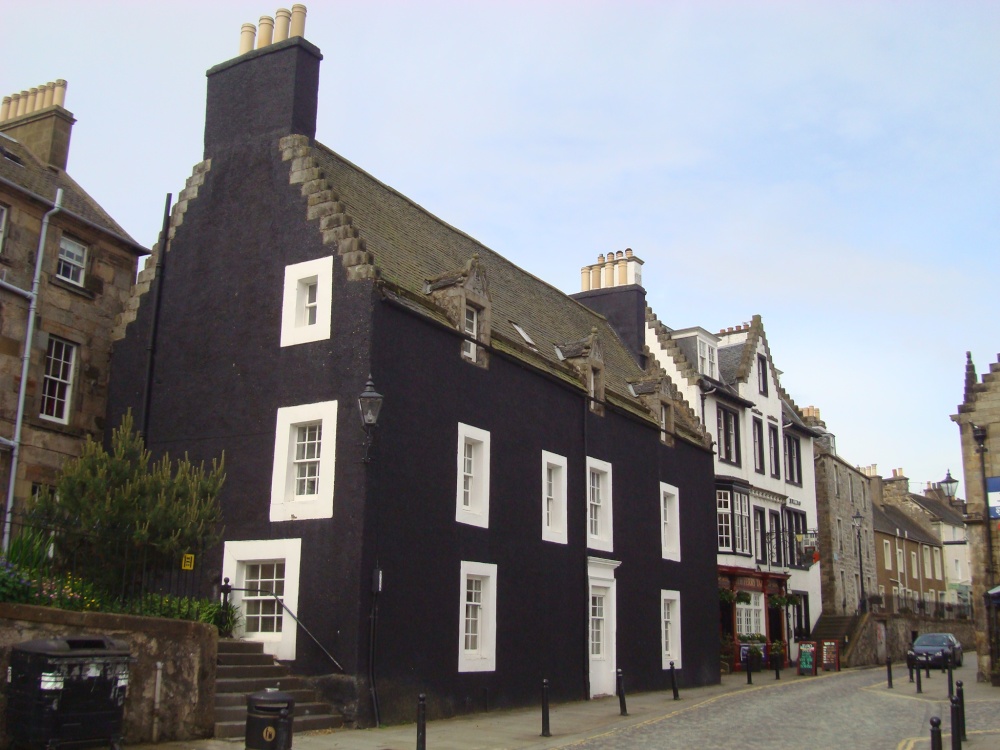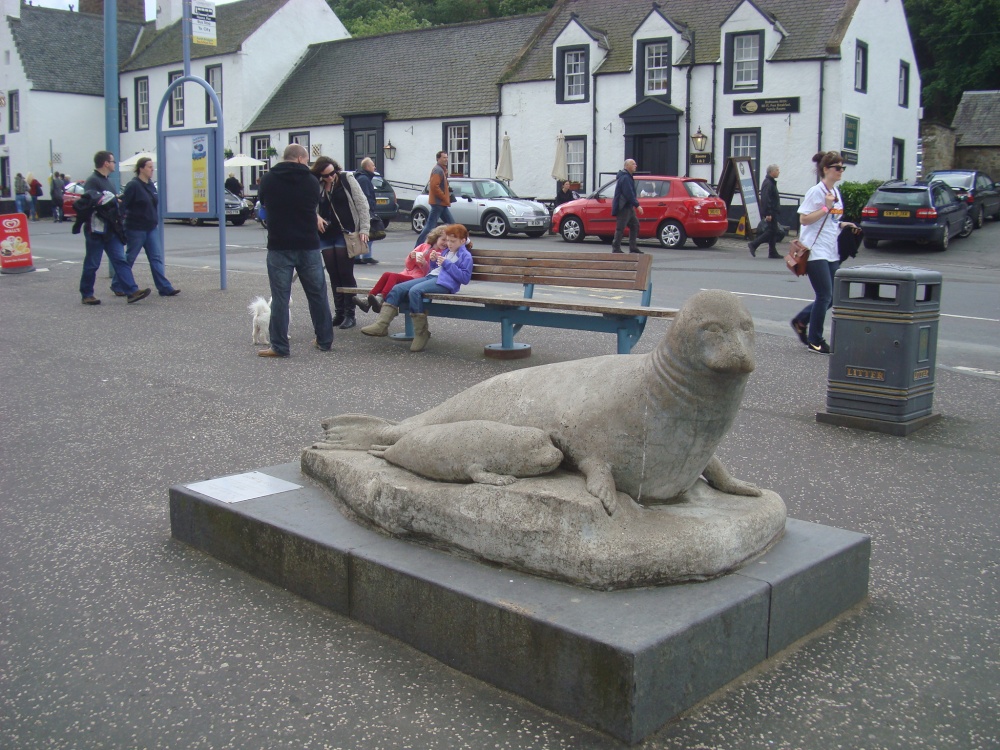Please login or click here to join.
Forgot Password? Click Here to reset pasword
 |
Black Castle Built in 1626, this is the oldest house in South Queensferry. When the sea captain who built it was lost at sea, the housemaid was accused of paying a beggar woman to cast a spell on him. Both were burned as witches. This picture appears in the following picture tours: Camera Make: SONY� Model: DSC-W200� |
 |
Dalmeny This picture appears in the following picture tour: Camera Make: SONY� Model: DSC-W200� |
 |
Dalmeny Station (for South Queensferry) This picture appears in the following picture tour: Camera Make: SONY� Model: DSC-W200� |
 |
Dalmeny Station (for South Queensferry) This picture appears in the following picture tour: Camera Make: SONY� Model: DSC-W200� |
 |
Embankment scene This picture appears in the following picture tour: Camera Make: SONY� Model: DSC-W200� |
 |
South end of the Forth Bridge from Dalmeny Station This picture appears in the following picture tours: Camera Make: SONY� Model: DSC-W200� |
 |
South Queensferry from the Loan This picture appears in the following picture tours: Camera Make: SONY� Model: DSC-W200� 1 person has added this picture to their favourites |
 |
The Forth Bridge The huge cantilever sections of the rail bridge spanning The Forth are one of the most familiar landmarks of Scotland. Completed in 1890, the Forth Rail Bridge was constructed from 54,000 tonnes of steel, 194,000 tonnes of stone and concrete, and in excess of 21,000 tonnes of cement. This was the largest steel bridge in the world, using approximately 7,500,000 rivets produced by The Clyde Rivet Company. Success was not without its casualties and, throughout the course of construction, 57 men lost their lives. This picture appears in the following picture tour: Camera Make: SONY� Model: DSC-W200� |
 |
The Forth Bridge from South Queensferry Today the bridge, now a 'listed structure', still carries about 150 trains each day across The Forth, and has been regularly maintained over the years. An extensive five-year refurbishment programme was undertaken at the turn of the millennium, costing in excess of £40m, and employing somewhere between 150 and 300 men per day, six days a week. At an average height above the general water level of some 361ft (109m), the exposed conditions on the Forth Rail Bridge can prove very hazardous but latest techniques, and anti-corrosion products, have greatly reduced the maintenance involved. It used to be said that as soon as the painting team had reached the far side of the bridge, it was time to start over at the beginning. This picture appears in the following picture tour: Camera Make: SONY� Model: DSC-W200� |
 |
The structure of the Forth Bridge When The Forth Bridge Railway Company were formed in 1882 to construct and operate the new bridge, they adopted the rather radical design proposed by Benjamin Baker and Sir John Fowler. Parliamentary consent was given in July to begin construction on the innovative cantilever structure, and the contract was awarded to William Arrol on 21st December. The three main cantilevers were completed and in place by 1887, but the final operation of joining the girder booms to close the gaps rested on the prevailing climate. In less than eight years The Forth Rail Bridge was completed, the official opening ceremony being performed by HRH The Prince of Wales on 4th March 1890. On this prestigious occasion, attracting members of the Royal Family, MPs, consultant engineers from home and abroad, and directors from other railway companies, The Prince of Wales placed the final gilded rivet in place. This picture appears in the following picture tour: Camera Make: SONY� Model: DSC-W200� |
 |
Hawes Pier The Hawes Pier was built in 1812 and used as the southern terminus of the vehicular ferry across the Queensferry Narrows until 1964 when the nearby Forth Road Bridge was opened. The Pier is now mainly used by recreational vessels such as the 'Maid of Forth', waiting to take passengers to Inchcolm Island. This picture appears in the following picture tours: Camera Make: SONY� Model: DSC-W200� |
 |
Edinburgh Road This picture appears in the following picture tour: Camera Make: SONY� Model: DSC-W200� |
 |
Inchgarvie Fortifications In the days when boats were the only way to cross the Firth of Forth, the island was on the main route between North Queensferry in Fife and South Queensferry in Lothian. This made the island strategically important and Inchgarvie was the site of a Castle built by King James IV in 1490, presumably for defensive purposes. Between 1519 and 1671, the island was the site of a prison within the Castle. Although Inchgarvie is presently uninhabited, it became important to the security of the Firth of Forth during the WWI and the WWII. This picture appears in the following picture tour: Camera Make: SONY� Model: DSC-W200� |
 |
Jublilee Clock Tower This picture appears in the following picture tour: Camera Make: SONY� Model: DSC-W200� |
 |
Queensferry Parish Church This picture appears in the following picture tours: Camera Make: SONY� Model: DSC-W200� |
 |
South Queensferry This picture appears in the following picture tour: Camera Make: SONY� Model: DSC-W200� |
 |
South Queensferry This picture appears in the following picture tour: Camera Make: SONY� Model: DSC-W200� |
 |
South Queensferry waterfront This picture appears in the following picture tours: Camera Make: SONY� Model: DSC-W200� |
 |
South Queensferry, High Street This picture appears in the following picture tour: Camera Make: SONY� Model: DSC-W200� |
 |
South Queensferry, the Ferry Tap This picture appears in the following picture tours: Camera Make: SONY� Model: DSC-W200� |